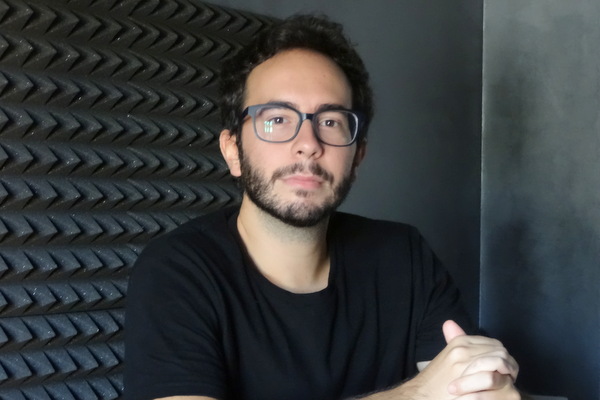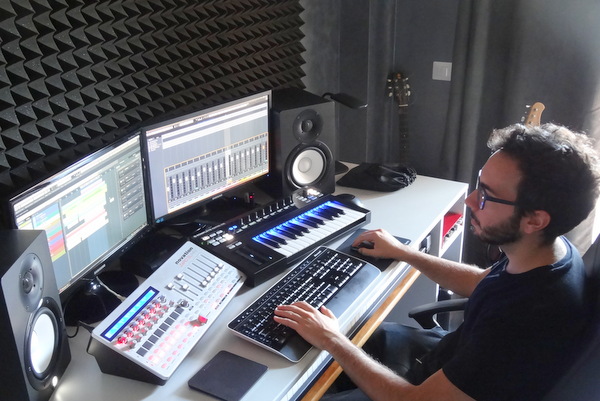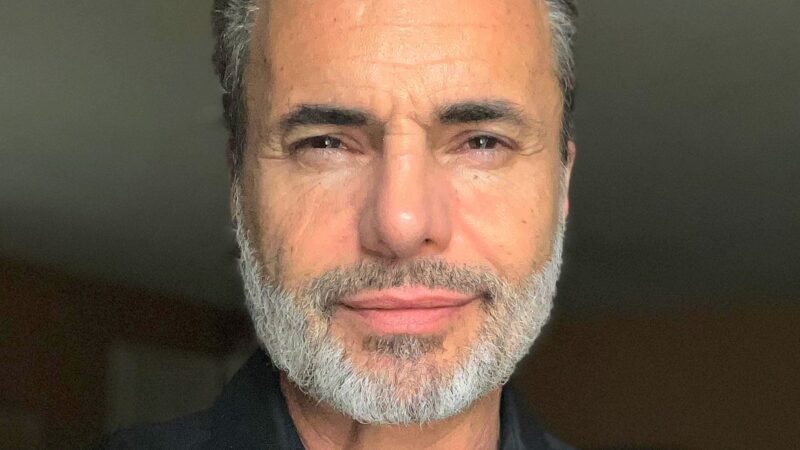
Andrea Bellucci was born and raised in the Eternal City, Rome, He always loved movies, animation and computer games. He spent lots of hours with friends playing at computer games during his childhood and also practicing martial arts and during his adolescence age, he switched to watching movies in theaters or at home, while playing basketball whenever possible.
indieactivity: Write about your career briefly?
Andrea: After being graduated, I just started working on indie productions and major ones in my country, thanks to meetings and events at Conservatory/University, in which I met many young directors, publishers, producers, and had the possibilities to gain their attention, interest, and trust.
indieactivity: Did you study music or score for film?
Andrea: I (Andrea Bellucci) started to play piano at 15, self-teaching myself, and soon I realized that I wanted to be a professional musician. So I passed from playing basketball day, to playing piano all day, and then I attended courses at S. Cecilia Conservatory, on Piano and Visual Media Music Composition, and on Cinematic Arts and Musicology at Tor Vergata University of Rome.
indieactivity: Describe your process as a film composer?
Andrea: First thing is to get into the plot, as deep as possible, and try to make it mine. I think about it as much as I can, even in spare time, it doesn’t matter: the point is to have that idea always focused in my mind. And then, if I’ve already got the edit, I get into scoring it scene by scene, establishing musical relations between them, whether with themes, or just with recurring sounds and timbres, or distinctive rhythms….whatever is necessary to make a formal unity of the whole)
indieactivity: Who is your greatest inspiration?
Andrea: Nobody in particular. Each of us composers has to find his unique voice, stealing from previous, learning from others, always trying to add something new to that big, unlimited, undefined and everlasting human artistic process that we called “music”. That’s why we say “a piece” of music: because you take something from it, “a piece”, but in the same time you have to give music something back, something new, so it can prosper…
indieactivity: How would you describe the influence of your work?
Andrea: Well among the usual “gods” of film music, living and dead ones, I got lots of inspiration from early 20th century great composers, like Stravinsky, Vaughan-Williams, Holst, Debussy, Ravel, Bartok. They all lived in a moment of cultural transition, when things got turned very quickly and in a very drastic mode (just think about the expressionism) and they all wrote some great compositions not just in the absolute music field, but also for ballet, theater and film as well. Therefore, they just set a first path for great film music, and you’d be surprised to know how many composers today take inspiration from them, and it’s also incredible how they can be modern most of the time (think about The Shining’s OST, just made with compositions from Ligeti, Penderecki and Bartok).

indieactivity: What books do you read? Do you talk at a seminars?
Andrea: I come from classical studies, so I love philosophy and literature, but in these latter years I’m reading lots of scientific books. I had the privilege to teach a class, at one of our Italian University, and yes: I’m one of them who love talking in front of a crowd!
indieactivity: When you get a project, what procedures do you implement?
Andrea: At a first stage, it’s very important to talk a lot with the Director and the Producer, to find out what they need from the music, so I can suggest music directions and set up a line to follow about the score. Then I usually start scoring from the beginning of the film, sending every scored scene just as soon as I finish each track, so the Director is always kept up on what’s going on in my studio, because sometimes you just have to reassure your Director that everything’s up and running, otherwise he could start to think that there are problems or slowdowns, and that’s not useful at all. So I always try to be present, and send stuff as soon as it’s ready for listening. Of course, any change or doubt or whatever, is discussed and worked out as soon as possible, until everything’s done and ready for final mix.
indieactivity: Tell us about near misses, your failures and successes?
Andrea: Accepting misses and failures is part of our job, as it always require a certain amount of competition; so the sooner you realize that (and accept that if you want), the soon you can go further in your career. But you need successes too, if you want to really go on, so what’s success? I guess that it resides in every “thank you” directors says to you, in every “that’s perfect, bravo!” that they say, and in every laugh and good time you have with them






